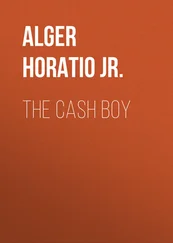Horatio Alger - The Store Boy
Здесь есть возможность читать онлайн «Horatio Alger - The Store Boy» — ознакомительный отрывок электронной книги совершенно бесплатно, а после прочтения отрывка купить полную версию. В некоторых случаях можно слушать аудио, скачать через торрент в формате fb2 и присутствует краткое содержание. Жанр: foreign_children, literature_19, foreign_antique, foreign_prose, на английском языке. Описание произведения, (предисловие) а так же отзывы посетителей доступны на портале библиотеки ЛибКат.
- Название:The Store Boy
- Автор:
- Жанр:
- Год:неизвестен
- ISBN:нет данных
- Рейтинг книги:5 / 5. Голосов: 1
-
Избранное:Добавить в избранное
- Отзывы:
-
Ваша оценка:
- 100
- 1
- 2
- 3
- 4
- 5
The Store Boy: краткое содержание, описание и аннотация
Предлагаем к чтению аннотацию, описание, краткое содержание или предисловие (зависит от того, что написал сам автор книги «The Store Boy»). Если вы не нашли необходимую информацию о книге — напишите в комментариях, мы постараемся отыскать её.
The Store Boy — читать онлайн ознакомительный отрывок
Ниже представлен текст книги, разбитый по страницам. Система сохранения места последней прочитанной страницы, позволяет с удобством читать онлайн бесплатно книгу «The Store Boy», без необходимости каждый раз заново искать на чём Вы остановились. Поставьте закладку, и сможете в любой момент перейти на страницу, на которой закончили чтение.
Интервал:
Закладка:
"You shall have it whenever you call at the house. But you mustn't think too much of getting money."
"I don't mean to; but I should like to make my mother comfortable. I don't see much chance of it while I remain a 'grocer's boy,' as Tom Davenport calls me."
"Better be a grocer's boy than spend your time in idleness, as Tom does."
"Tom thinks it beneath him to work."
"If his father had been of the sane mind when he was a boy, he would never have become a rich man."
"Was Squire Davenport a poor boy?"
"Yes, so uncle told me the other day. When he was a boy he worked on a farm. I don't know how he made his money, but I presume he laid the foundation of his wealth by hard work. So, Tom hasn't any right to look down upon those who are beginning now as his father began."
They had by this time traversed half the distance from the Town Hall to the young lady's home. The subject of conversation was changed and they began to talk about the evening's entertainment. At length they reached the minister's house.
"Won't you come in, Ben?" asked Rose.
"Isn't it too late?"
"No, uncle always sits up late reading, and will be glad to see you."
"Then I will come in for a few minutes."
Ben's few minutes extended to three-quarters of an hour. When he came out, the moon was obscured and it was quite dark. Ben had not gone far when he heard steps behind him, and presently a hand was laid on his shoulder.
"Hello, boy!" said a rough voice.
Ben started, and turning suddenly, recognized in spite of the darkness, the tramp who had attempted to rob him during the day. He paused, uncertain whether he was not going to be attacked, but the tramp laughed reassuringly.
"Don't be afraid, boy," he said. "I owe you some money, and here it is."
He pressed into the hand of the astonished Ben the dollar which our hero had given him.
"I don't think it will do me any good," he said. "I've given it back, and now you can't say I robbed you."
"You are a strange man," said Ben.
"I'm not so bad as I look," said the tramp. "Some day I may do you a service. I'm goin' out of town to-night, and you'll hear from me again some time."
He turned swiftly, and Ben lost sight of him.
CHAPTER VII THE TRAMP MAKES ANOTHER CALL
My readers will naturally be surprised at the tramp's restitution of a coin, which, though counterfeit, he would probably have managed to pass, but this chapter will throw some light on his mysterious conduct.
When he made a sudden exit from Mrs. Barclay's house, upon the appearance of the squire and his friend, he did not leave the premises, but posted himself at a window, slightly open, of the room in which the widow received her new visitors. He listened with a smile to the squire's attempt to force Mrs. Barclay to sell her house.
"He's a sly old rascal!" thought the tramp. "I'll put a spoke in his wheel."
When the squire and his wife's cousin left the house, the tramp followed at a little distance. Not far from the squire's handsome residence Kirk left him, and the tramp then came boldly forward.
"Good-evenin'," he said familiarly.
Squire Davenport turned sharply, and as his eye fell on the unprepossessing figure, he instinctively put his hand in the pocket in which he kept his wallet.
"Who are you?" he demanded apprehensively.
"I ain't a thief, and you needn't fear for your wallet," was the reply.
"Let me pass, fellow! I can do nothing for you."
"We'll see about that!"
"Do you threaten me?" asked Squire Davenport, in alarm.
"Not at all; but I've got some business with you—some important business."
"Then call to-morrow forenoon," said Davenport, anxious to get rid of his ill-looking acquaintance.
"That won't do; I want to leave town tonight."
"That's nothing to me."
"It may be," said the tramp significantly. "I want to speak to you about the husband of the woman you called on to-night."
"The husband of Mrs. Barclay! Why, he is dead!" ejaculated the squire, in surprise.
"That is true. Do you know whether he left any property?"
"No, I believe not."
"That's what I want to talk about. You'd better see me to-night."
There was significance in the tone of the tramp, and Squire Davenport looked at him searchingly.
"Why don't you go and see Mrs. Barclay about this matter?" he asked.
"I may, but I think you'd better see me first."
By this time they had reached the Squire's gate.
"Come in," he said briefly.
The squire led the way into a comfortable sitting room, and his rough visitor followed him. By the light of an astral lamp Squire Davenport looked at him.
"Did I ever see you before?" he asked.
"Probably not."
"Then I don't see what business we can have together. I am tired, and wish to go to bed."
"I'll come to business at once, then. When John Barclay died in Chicago, a wallet was found in his pocket, and in that wallet was a promissory note for a thousand dollars, signed by you. I suppose you have paid that sum to the widow?"
Squire Davenport was the picture of dismay. He had meanly ignored the note, with the intention of cheating Mrs. Barclay. He had supposed it was lost, yet here, after some years, appeared a man who knew of it. As Mr. Barclay had been reticent about his business affairs, he had never told his wife about having deposited this sum with Squire Davenport, and of this fact the squire had meanly taken advantage.
"What proof have you of this strange and improbable story?" asked the squire, after a nervous pause.
"The best of proof," answered the tramp promptly. "The note was found and is now in existence."
"Who holds it—that is, admitting for a moment the truth of your story?"
"I do; it is in my pocket at this moment."
At this moment Tom Davenport opened the door of the apartment, and stared in open-eyed amazement at his father's singular visitor.
"Leave the room, Tom," said his father hastily. "This man is consulting me on business."
"Is that your son, squire?" asked the tramp, with a familiar nod.
"He's quite a young swell."
"What business can my father have with such a cad?" thought Tom, disgusted.
Tom was pleased, nevertheless, at being taken for "a young swell."
CHAPTER VIII SQUIRE DAVENPORT'S FINANCIAL OPERATION
Squire Davenport was a thoroughly respectable man in the estimation of the community. That such a man was capable of defrauding a poor widow, counting on her ignorance, would have plunged all his friends and acquaintances into the profoundest amazement.
Yet this was precisely what the squire had done.
Mr. Barclay, who had prospered beyond his wife's knowledge, found himself seven years before in possession of a thousand dollars in hard cash. Knowing that the squire had a better knowledge of suitable investments than he, he went to him one day and asked advice. Now, the squire was fond of money. When he saw the ample roll of bank notes which his neighbor took from his wallet, he felt a desire to possess them. They would not be his, to be sure, but merely to have them under his control seemed pleasant. So he said:
"Friend Barclay, I should need time to consider that question. Are you in a hurry?"
"I should like to get the money out of my possession. I might lose it or have it stolen. Besides, I don't want my wife to discover that I have it."
"It might make her extravagant, perhaps," suggested the squire.
"No, I am not afraid of that; but I want some day to surprise her by letting her see that I am a richer man than she thinks."
"Very judicious! Then no one knows that you have the money?"
"No one; I keep my business to myself."
"You are a wise man. I'll tell you what I will do, friend Barclay. While I am not prepared to recommend any particular investment, I will take the money and give you my note for it, agreeing to pay six per cent. interest. Of course I shall invest it in some way, and I may gain or I may lose, but even if I do lose you will be safe, for you will have my note, and will receive interest semi-annually."
Читать дальшеИнтервал:
Закладка:
Похожие книги на «The Store Boy»
Представляем Вашему вниманию похожие книги на «The Store Boy» списком для выбора. Мы отобрали схожую по названию и смыслу литературу в надежде предоставить читателям больше вариантов отыскать новые, интересные, ещё непрочитанные произведения.
Обсуждение, отзывы о книге «The Store Boy» и просто собственные мнения читателей. Оставьте ваши комментарии, напишите, что Вы думаете о произведении, его смысле или главных героях. Укажите что конкретно понравилось, а что нет, и почему Вы так считаете.












